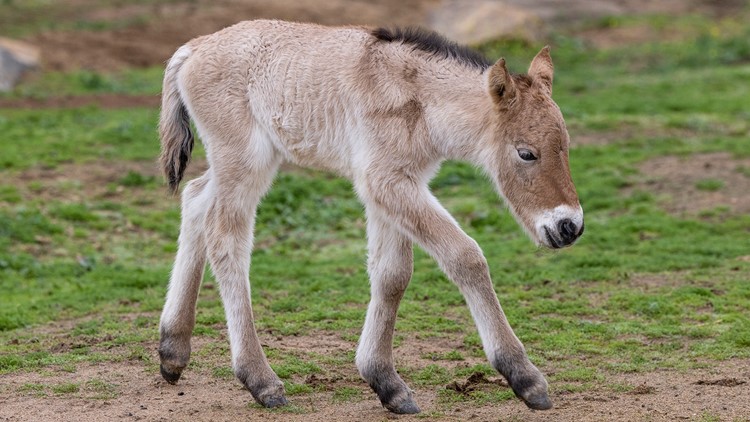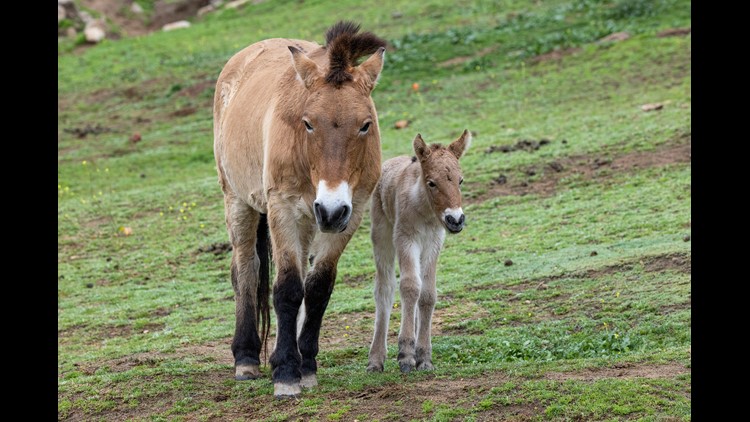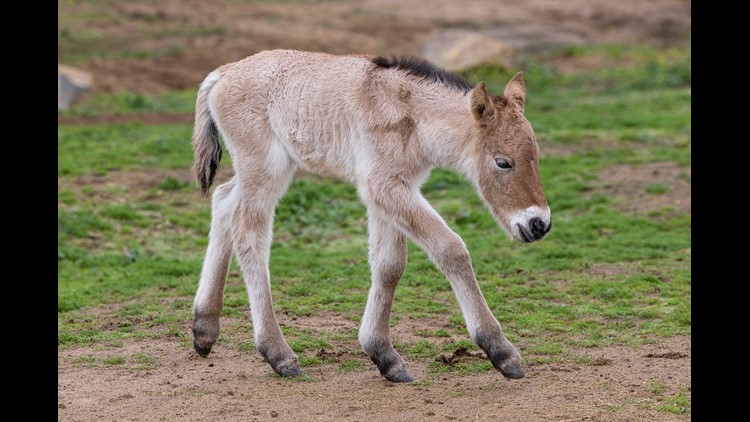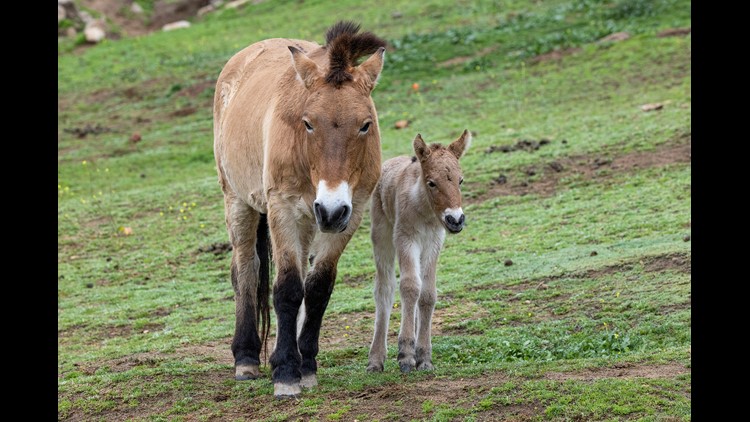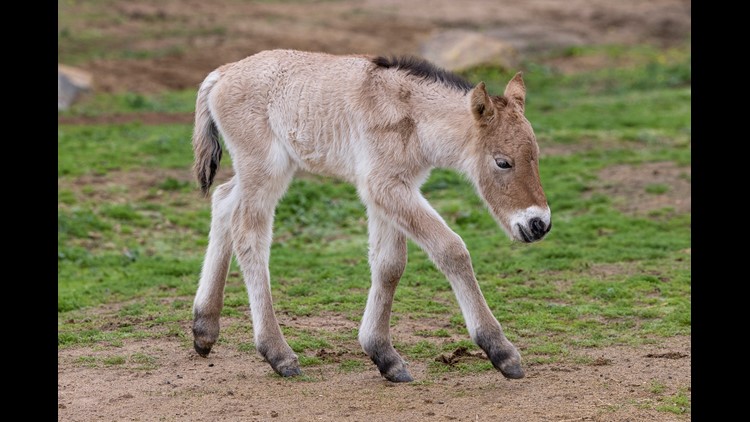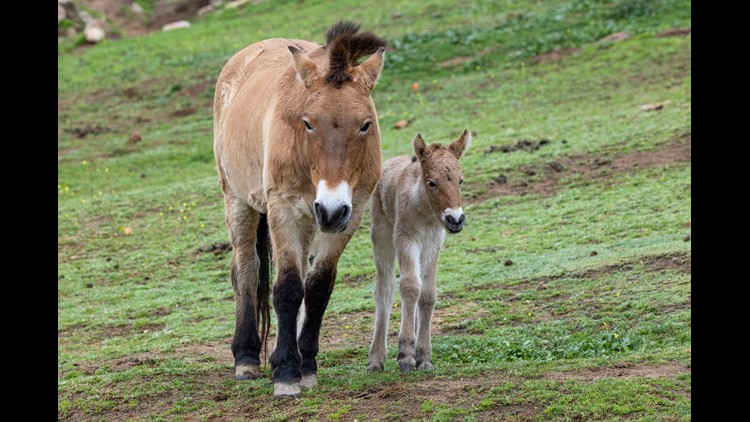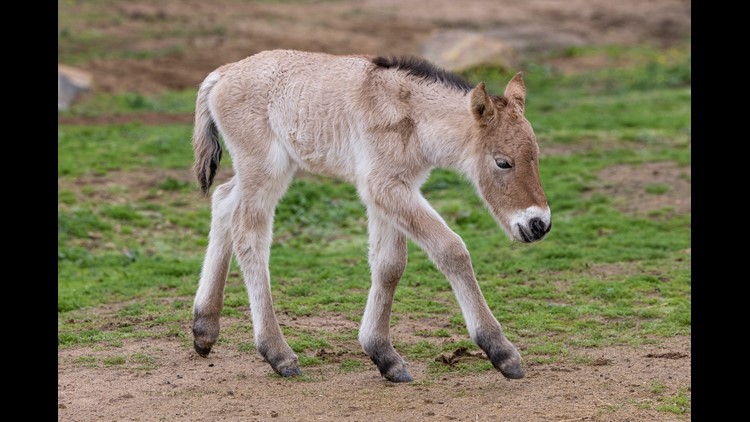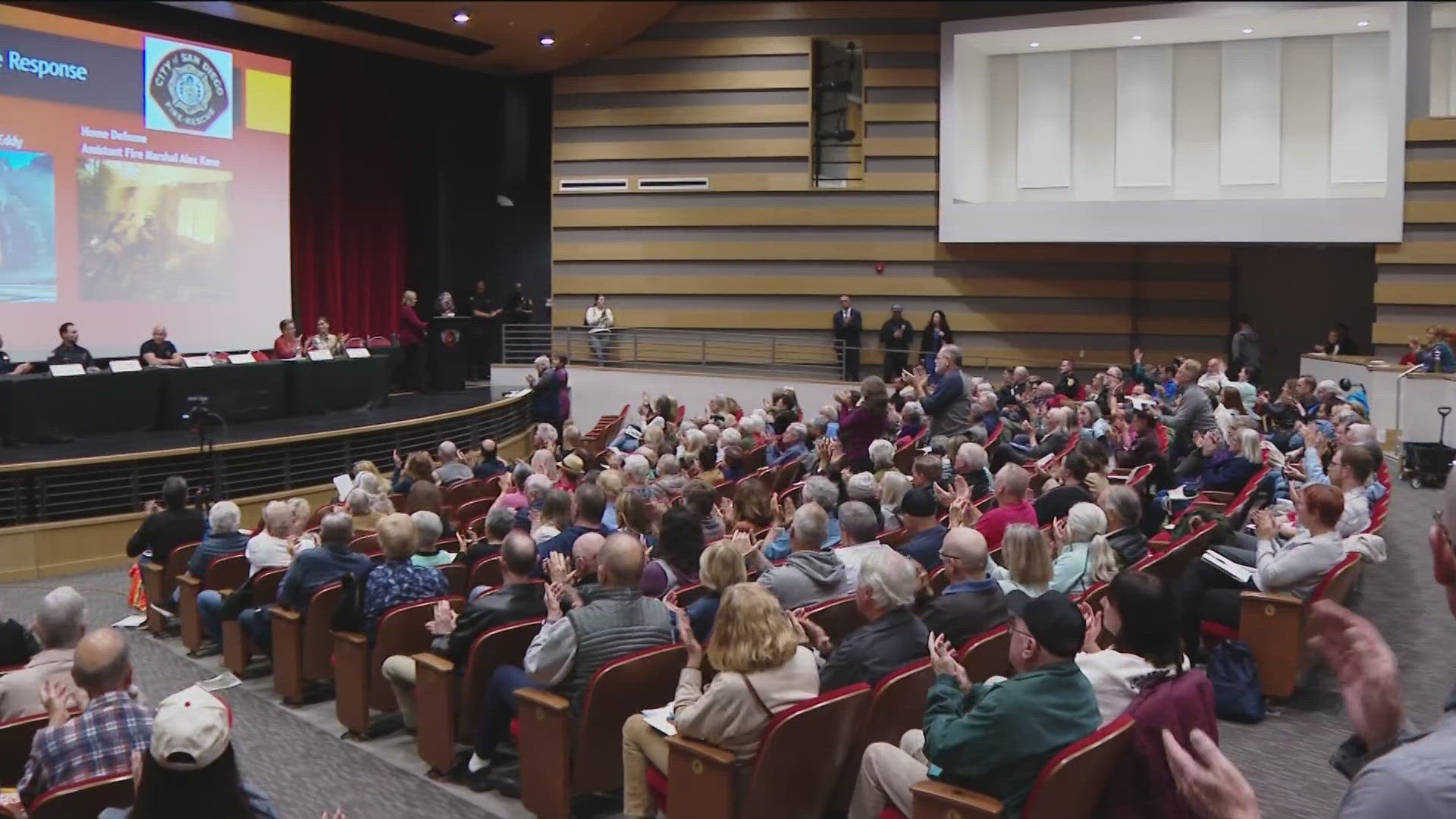SAN DIEGO — Editors Note: A previous version of this article mentioned the newborn Przewalski's horse was named Kurt. CBS 8 has learned that the horse has yet to be named.
The San Diego Zoo Safari Park recently welcomed a Przewalski's horse foal and the first of those critically endangered animals to be born at the park since 2014, it was announced Friday.
The Przewalski's horse was categorized as Extinct in the Wild until 1996. The foal is one of just four newborns in North America over the past year.
"Every birth is a tremendous moment, so we are elated by this new foal," said Kristi Burtis, wildlife care director at the San Diego Zoo Safari Park. "We've had more than 157 Przewalski's horses born at the zoo and the safari park.
San Diego Safari Park welcomes newborn Przewalski's Horse
"They are an important wild horse species, and this new foal, along with each individual born at our parks, bolsters their fragile population -- and represents our deep commitment to conserving them for future generations."
The foal, who has not yet been named, was born as part of a breeding recommendation through the Association of Zoos and Aquariums' Przewalski's horse Species Survival Plan.
According to the San Diego Zoo Wildlife Alliance, the species has survived for the past 40 years, almost entirely in zoos worldwide. Nearly all surviving horses are related to 12 Przewalski's horses born in native habitats.
Ongoing reintroductions of the horses into their native habitats have established several herds in grasslands in China and Mongolia to maintain genetic variation. However, scientists believe more work needs to be done to ensure future species' survival.
Through a collaborative effort, science teams from the nonprofit Revive & Restore, the animal cloning company ViaGen Pets & Equine, and San Diego Zoo Wildlife Alliance achieved the world's first successfully cloned Przewalski's horse in 2020.
That horse, named Kurt, was born to a surrogate mother -- a domestic quarter horse -- and is the clone of a male Przewalski's stallion whose DNA was cryopreserved 42 years ago in the Alliance's Wildlife Biodiversity Bank.
"Kurt is significant to his species because he offers the hope of bringing back lost genetic diversity to the population," said Nadine Lamberski, chief conservation, and wildlife health officer for San Diego Zoo Wildlife Alliance. "It is imperative to do everything we can to save this genetic diversity before it disappears."
The colt was named Kurt in honor of Dr. Kurt Benirschke, who joined the zoo's research committee in 1970 and worked as the zoo's research director from 1974 to 1986. Dr. Benirschke died in 2018 at the age of 94.
WATCH RELATED: Dog removed after entering gorilla enclosure at San Diego Zoo Safari Park


